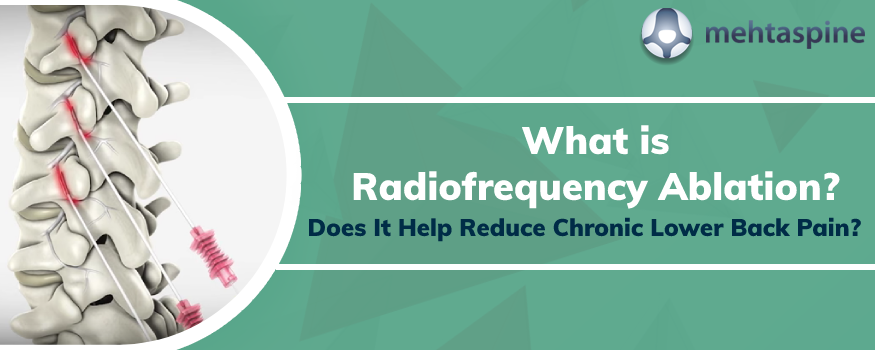What is Radiofrequency Ablation? Does It Help Reduce Chronic Lower Back Pain?
Radiofrequency Ablation is being actively recommended to help reduce chronic lower back pain in the UK for a few years now. And, there have been many questions about the procedure from the patients and this blog is dedicated to improving awareness about the procedure. So today, we are going to give you more information about Radiofrequency Ablation – procedure, benefits, safety, results and risks. Read on:
What is Radiofrequency Ablation?
Radiofrequency ablation is a minimally invasive, non-surgical procedure that uses heat generated by electromagnetic waves to stop pain signal transmission.
By ablating, burning or destroying the nerves that are causing pain or transmitting the pain to the brain, chronic pain in conditions like arthritis, spondylosis or sacroilitis or even chronic back pain, neck knee, peripheral nerve pain is reduced.
What are the benefits of Radiofrequency Ablation?
Radiofrequency Ablation is generally performed by neurologists, Orthopaedic specialist and spine surgeons in the UK when other invasive methods fall short of providing adequate relief. Immediate pain relief, quick recovery, improved mobility and function, reduced need for medication are some of the benefits of Radiofrequency Ablation.
What happens before and after the treatment?
After reviewing the medical history and performing imaging studied the physician identifies the suitable site for the ablation procedure. Radiofrequency ablation is a simple procedure that is performed in an outpatient surgery suite. A local anaesthetic is used to numb the area and imaging is used to locate the exact spot of the affected nerves. Using special x-ray equipment for imaging guidance, a needle is injected into the desired pain area accurately. When the needle is in the right location, a mild numbing medication is given followed by a radiofrequency current precisely to the affected nerve to destroy it to cease the pain transmission.
The majority of patients can easily walk around after the procedure. However, we recommend you to someone by your side to drive you home. Patients may experience mild pain for up to 7 days at most, but the majority easily get back to their work in 2-3 days. Patients are recommended to schedule follow-ups with the specialist to talk about the post-operation concerns if any.
What are the risks of Radiofrequency Ablation?
About the risks, Radiofrequency Ablation is the relatively safest procedure when compared to all other alternatives. It is minimally invasive and has a high success rate, yet like very procedure complication does occur in a few cases which may range from infection, allergy for medication and numbness.
Does Radiofrequency Ablation Help Reduce Chronic Lower Back Pain?
Radiofrequency Ablation is one of the most effective procedures when to comes to treating lower back pain. In the majority of the cases, patients experience pain relief that lasts for a year to two. However, in a few cases, the nerve may regrow back after ablation which may reduce the pain-relief time. In general, we estimate that around 80% of the patients experience pain relief after RFA and if the nerve grows back, the procedure can be repeated by an orthopaedic surgeon or spine specialist in the UK.
If you are looking for lower back pain treatment in the UK or you need more information on Radiofrequency Ablation, Children and Adult Spinal Surgeon Mr Jwalant S Mehta can help you. You can contact him here: Clinical secretary: +44 785 021 1939


